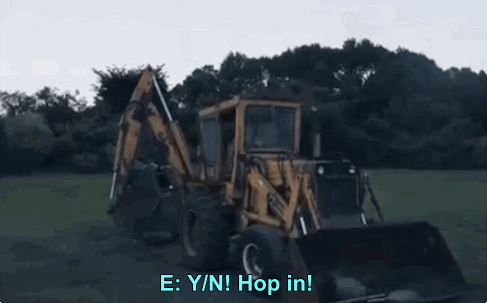italy | i speak italian, english and spanish | i'm actually learning norwegian, french, german, finnish, russian, danish, swedish latin, ancient & modern greek
Don't wanna be here? Send us removal request.
Text
dont eat it. you dont deserve it.
Not because you don’t deserve food.
Because you don’t deserve to feel regret.
You don’t deserve to ruin your process
You don’t deserve waking up the next day hopless feeling like you’ll never be thin.
You don’t desreve to gain.
You don’t desreve to feel fat.
You just don’t deserve to hate yourself.
You deserve to be proud.
🌻
399 notes
·
View notes
Text
Norwegian word order
Word order can be tricky to master in any language, and since I’ve had some questions about this recently (@wordsnnblues) I thought I’d make a post that covers the most important rules. This is simply a guide to the most common workings of Norwegian word order, and is unfortunately not exhaustive, but I tried to include the most important aspects.

The V2-rule
The main rule regarding Norwegian word order is that the finite verb (V) takes the second position* in the sentence. Some other parts are a bit more flexible, and there can be quite a few changes to word order depending on what element precedes the finite verb.
Note that there is a difference between position and word. There can be several words in one position, for example in the first position, and thus, even though the verb must be in the second position, it can be later in the sequence in terms of words.
Main clauses
When the subject is fronted (SVO)
Putting the subject in the first position is the most usual way of constructing sentences in Norwegian, just like in English. The subject must then be followed by a verb according to the V2-rule above, which then can be followed by an object or adverb (or verb) as wished and depending on the characteristics of the finite verb.
Examples
Hun (S) spiser (V) = She (S) eats (V) / She (S) is eating (V)
Hun (S) spiser (V) mat (O) = She (S) eats (V) food (O)
Hun (S) spiser (V) fort (Adv.) = She (S) eats (V) fast (Adv.)
Hun (S) spiser (V) maten (O) fort (Adv.) = She (S) eats (V) the food (O) fast (Adv)
This is also valid for other tenses, just like in English:
Hun (S) spiste (V) mat (O) = She (S) ate (V) food (O)
Hun (S) har spist (V) mat (O) = She (S) has eaten (V) food (O)
Hun (S) skal spise (V) mat (O) = She (S) will/is going to eat (V) food (O)
Adverbial phrases in SVO sentences
In sentences where the subject is in the first position, adverbial phrases are usually placed straight after the verb. Adverbial phrases of time or place are usually placed in the last position. This applies for all tenses.
Some common general adverbials (A):
Ikke = Not Også = Also Kanskje - Maybe Aldri = Never Alltid = Always Dessverre = Unfortunately Sjelden = Rarely Ofte = Often Allerede = Already Fortsatt = Still
Some common adverbials of time (AoT)
I går = Yesterday I dag = Today I morgen = Tomorrow Nå = Now Neste/forrige uke/måned/år = Next/last week/month/year I fjor = Last year Denne gangen = This time Den gangen = That time
Some common adverbials of place (AoP)
Der = There Her = Here Dit = (To) there Hit = (To) here Hos … = At …’s (place) I … = In …,
Examples
Hun (S) spiser (V) ikke (A) kjøtt (O) = She (S) does not (A) eat (V) meat (O)
Hun (S) spiste (V) sjelden (A) kjøtt (O) = She (S) rarely (A) ate (V) meat (O)
Hun (S) har aldri (A) spist (V) kjøtt (O) = She (S) has never (S) eaten (V) meat (O)
Hun (S) skal kanskje (A) spise (V) kjøtt (O) = She (S) will maybe eat (V) meat (O) / She is maybe going to eat (V) meat (O)
Subject-verb inversion = When another (non-verb) element is fronted (VSO)
Sometimes you want to put another element in the first position, for example to add emphasis. In these cases, the finite verb and the subject switches places; the (finite) verb still remains in the second position and is followed by the subject. In English, the subject is placed in the second position and the verb follows it in the third position.
Examples
Nå (AoT) spiser (V) jeg (S) mat (O) = Now (AoT), I (S) am eating (V) food (O).
I går (AoT) spiste (V) jeg (S) kjøtt (O) = Yesterday (AoT), I (S) ate (V) meat (O)
I dag (AoT) har (V) jeg (S) gjort (v) lekser (O) = Today (AoT) I (S) have done (V) homework (O)
Denne (O) skal (V) jeg (S) spise (v) i morgen (AoT) = This one (O) I (S) will eat (V) tomorrow (AoT)
I Frankrike (AoP) spiser (V) de (S) ost (O) = In France (AoP), they (S) eat (V) cheese (O)
Adverbials in VSO / inverted sentences
In VSO sentences, the adverbial (A) is often placed after the subject, in the fourth position.
I går (AoT) spiste (V) jeg (S) dessverre (A) kjøtt = Yesterday, (AoT) I (S) unfortunately (A) ate (V) meat (O)
Hos besteforeldrene mine (AoP) får (V) jeg (S) alltid (A) godteri (O) = At my grandparent’s house (AoP) I (S) always (A) get (V) candy (O)
Når jeg drar på ferie (AoT) spiser (V) jeg (S) ofte (A) på restauranter (O) = When I go on holiday (AoT) I (S) often (A) eat (V) at restaurants (O)
The conjunctions “og”, “men” and “for”.
og = and men = but for = because / as / since / for
These conjunctions link main clauses, and the word order does not change when these are used.
Examples:
Han (S) spiser (V) appelsiner (O), og (conj.) hun (S) spiser (V) epler (O). = He (S) eats (V) oranges (O) and (conj.) she (S) eats (V) apples (O)
Han (S) liker (V) kaffe (O), men (conj.) han (S) liker (V) ikke (A) te (O) = He(S) likes (V) coffee (O), but (conj.) he (S) does not (A) like (V) tea (O).
Jeg (S) kommer (V) ikke (A), for (conj.) mamma (S) kan (V) ikke (A) kjøre (v) meg (O). = I (S) am (V) not (A) coming (V), because (conj.) mom (S) can(V)not (A) drive (v)me (O).
Interrogative sentences
In Norwegian, like in English, questions are introduced by either a verb or an interrogative word.
In Norwegian, the most used interrogative words are:
Hva - What Hvem - Who Hvor - Where Hvorfor - Why Hvordan - How (When followed by verb. Only in regards to method/way of doing) Hvor … - How … (When followed by an adjective or adverb. In regards to extent, size and amount.) Hvilken/Hvilket/Hvilke - Which Hva slags - What kind
When using an interrogative word, this is placed in the first position, and the finite verb is placed in the second position.
Hva (Int.) spiser (V) du (S) ? = What (Int.) are (V) you (S) eating (v)?
Hvor mye (Int.) koster (V) det (S) ? = How much (Int.) does (V) it (S) cost (v)?
Without the use of an interrogative, the finite verb is placed in the first position and the subject second.
Spiser (V) du (S) kjøtt (O)? - Do (V) you (S) eat (v) meat (O)? / Are (V) you (S) eating (v) meat (O)?
Gjorde (V) du (S) leksene dine (O)? - Did (V) you (S) do (v) your homework (O)?
Adverbials in interrogative sentences
In interrogative sentences, the general adverbials are most often placed in the third position, after the subject.
Spiser (V) du (S) ikke (A) kjøtt (O)? = Do (V) you (S) not (A) eat (v) meat (O)?
Subordinate clauses
Subordinate clauses are dependent clauses that are often part of a main clause. they can be introduced by certain subjunctions.
Some common subjunctions:
fordi = because at = that om = if siden = since / as
Subordinate clauses remain SVO sentences, with the subject preceding the verb.
Jeg (S) studerer (V) norsk (O) fordi (subj.) jeg (S) har (V) en norsk venn (O) = I (S) study (V) Norwegian (O) because (subj.) I (S) have (V) a Norwegian friend (O).
Hun(S) sa (V) at (subj.) hun (S) liker (V) meg (O) = She (S) said (V) that (subj.) she (S) likes (V) me (O)
Adverbials
Although the word order remains SVO in subordinate phrases, the placement of the adverbial changes, from being straight behind the finite verb (V) in main clauses, to being straight in front of the finite verb in subordinate ones.
Main clause
Hun (S) liker (V) ikke (A) kaffe (O) = She (S) does (V) not (A) like (v) coffee (O)
Subordinate clause:
(Hun sier) at (subj.) hun (S) ikke (A) liker (V) kaffe (O) = (She says) that (subj.) she (S) does (V) not (A) like (v) coffee (O)
Adverbials
The placement of adverbials can vary a lot depending on what kind of meaning you want to convey, and also on what kind of adverbial you are dealing with, so the rules on adverbials that are mentionned in this post are not complete. I recommend everyone who is curious and want to know more about this to refer to this pdf, which I think deals well with the topic: https://tanuljunknorvegul.files.wordpress.com/2014/02/learn-norwegian-language-routledge-norwegian-an-essential-grammar.pdf.
Hope this is clear, and that I’ve not forgotten any major elements. Please feel free to correct any mistakes or typos, and don’t hesitate to ask further questions if anything remains unclear! <3
782 notes
·
View notes
Text
Top 100 most common French verbs

1. Être ~ to be
2. Avoir ~ to have
3. Pouvoir ~ to be able (can)
4. Faire ~ to do; to make
5. Mettre ~ to put; to place
6. Dire ~ to say; to tell
7. Devoir ~ to have to, must, to owe
8. Prendre ~ to take; to catch; to capture
9. Donner ~ to give; to produce
10. Aller ~ to go
11. Vouloir ~ to want; to wish
12. Savoir ~ to know
13. Falloir ~ to have to
14. Voir ~ to see
15. Demander ~ to ask; to request
16. Trouver ~ to find; to discover
17. Rendre ~ to return (something); to give back
18. Venir ~ to come
19. Passer ~ to pass; to go past
20. Comprendre ~ to understand; to include; to comprehend
21. Rester ~ to stay; to remain
22. Tenir ~ to hold; to keep
23. Porter ~ to carry; to wear
24. Parler ~ to speak; to talk
25. Montrer ~ to show; to display
26. Continuer ~ to continue
27. Penser ~ to think
28. Suivre ~ to follow; to pay attention
29. Connaître ~ to know; to be acquainted with
30. Croire ~ to believe in
31. Commencer ~ to begin; to start; to commence
32. Compter ~ to count
33. Entendre ~ to hear; to understand
34. Attendre ~ to wait; to expect
35. Remettre ~ to put back (on); to replace; to deliver
36. Appeler ~ to call; to contact
37. Permettre ~ to permit; to allow; to enable
38. Occuper ~ to occupy; to take up (space/time)
39. Devenir ~ to become, to grow (into); to turn (into)
40. Partir ~ to leave; to depart; to proceed
41. Décider ~ to decide; to persuade
42. Arriver ~ to arrive; to happen
43. Servir ~ to serve
44. Sembler ~ to seem
45. Revenir ~ to return; to come back
46. Laisser ~ to leave; to allow; to let
47. Recevoir ~ to receive; to welcome
48. Répondre ~ to reply; to answer
49. Vivre ~ to live
50. Rappeler ~ to call back; to remind
51. Présenter ~ to present; to introduce
52. Accepter ~ to accept
53. Agir ~ to act
54. Poser ~ to put down; to pose; to lay (something) down
55. Jouer ~ to play; to act; to gamble
56. Reconnaître ~ to recognize; to acknowledge
57. Choisir ~ to choose; to select
58. Toucher ~ to touch; to feel; to affect
59. Aimer ~ to like; to love
60. Retrouver ~ to find; to regain; to meet up
61. Perdre ~ to lose; to waste
62. Expliquer ~ to explain; to account for
63. Considérer ~ to consider; to study
64. Ouvrir ~ to open (up)
65. Gagner ~ to win; to earn; to gain
66. Exister ~ to exist
67. Refuser ~ to refuse
68. Lire ~ to read
69. Réussir ~ to succeed
70. Changer ~ to change; to alter
71. travailler ~ to work
72. Représenter ~ to represent; to depict; to portray
73. Assurer ~ to secure; to assure; to insure
74. Essayer ~ to try; to attempt
75. Empêcher ~ to prevent; to stop
76. Sortir ~ to go out; to leave; to exit; to come out
77. Reprendre ~ to resume; to recover; to take back
78. Mener ~ to lead; to conduct
79. Appartenir ~ to belong ~ to concern
80. Risquer ~ to risk
81. Concerner ~ to concern; to affect
82. Apprendre ~ to learn; to teach; to hear of
83. Rencontrer ~ to meet; to encounter
84. Créer ~ to create; to build
85. Obtenir ~ to obtain; to get
86. Chercher ~ to look for; to seek
87. Entrer ~ to enter; to go in
88. Proposer ~ to suggest; to propose; to offer
89. Apporter ~ to bring; to cause
90. Utiliser ~ to use; to employ
91. Atteindre ~ to reach; to attain; to achieve
92. Tenter ~ to tempt
93. Importer ~ to import; to matter
94. Ajouter ~ to add
95. Produire ~ to produce
96. Préparer ~ to prepare (something); to make
97. Relever ~ to raise; to stand up; to pick up
98. Écrire ~ to write
99. Défendre ~ to defend; to stand up for; to forbid
100. Tirer ~ to pull; to draw (curtains, sword, etc); to fire (gun); to print
12K notes
·
View notes
Note
hello! could you translate the song “sing me to sleep” by alan walker to norwegian because i love the lyrics and would like to see them in norsk.
Hey! Of course, here you go (by the way, I love this song too):
Norwegian version:“Syng meg i søvn” - Alan Walker
Vent et sekund, la meg få tilbake pustenMinn meg på hvordan det føles å høre stemmen dinDine lepper beveger seg, jeg kan`kke høre en tingLever livet som om vi hadde et valgHvor som helst, når som helstJeg ville ha gjort alt for degHva som helst for degGårsdagen kom seg vekkMelodier støkk inne i hodet dittEn sang i hver en pust
Syng meg i søvn nåSyng meg i søvnÅh, bare syng meg i søvn nåSyng meg i søvn
Husk meg nå, tid kan ikke viske bortJeg kan høre dine hvisk i mitt sinnJeg har blitt det du ikke kan omfavneVårt minne vil bli min godnattsang
Syng meg i søvn nåSyng meg i søvnÅh, bare syng meg i søvn nåSyng meg i søvn
Når, når som helstJeg ville ha gjort, gjort, gjort, gjortTiden borteGårsdagen, dagen, dagen
Jeg ville ha gjort, gjort, gjort, gjortTiden borteGårsdagen, dagen, dagen
note: “kan`kke” is a contraction of “kan” (can) and “ikke” (not). It’s colloquial and therefore not a part of Standard Norwegian Bokmål.
Original version:“Sing Me To Sleep” - Alan Walker
Wait a second, let me catch my breathRemind me how it feels to hear your voiceYour lips are movin’, I can’t hear a thingLivin’ life as if we had a choiceAnywhere, anytimeI would do anything for youAnything for youYesterday got awayMelodies stuck inside your headA song in every breath
Sing me to sleep nowSing me to sleepOh, just sing me to sleep nowSing me to sleep
Remember me now, time cannot eraseI can hear your whispers in my mindI’ve become what you cannot embraceOur memory will be my lullaby
Sing me to sleep nowSing me to sleepOh, just sing me to sleep nowSing me to sleep
A-anytimeI would do-do-do-do-do-do-do-do-do-do-doTime awayYesterday-day-day-day-day
A-anytimeI would do-do-do-do-do-do-do-do-do-do-doTime awayYesterday-day-day-day-day
There are probably other ways to translate it, but this is how I’d do it. I hope you enjoyed this! :D
10 notes
·
View notes
Text
1/100 • norsk + français + deutsche
Learn 5 new words:
no/fr/de/eng/it
en dør / la porte / die Tür / the door / la porta
et dørhåndtak / la poignée de porte / der Türgriff / the door handle / la maniglia (della porta)
en pute / l'oreiller / das Kissen / the pillow / il cuscino
en seng / le lit / das Bett / the bed / il letto
et skap / la garde-robe / der Schrank / the wardrobe / l'armadio; il guardaroba
0 notes
Text
#100daysoflanguages
Hey, since I am OBSESSED with languages I decided to start the #100daysoflanguages challenge that I saw recently here on Tumblr. My target languages are Norwegian, French and German! Lykke til meg guys👀
0 notes
Photo

This is my 100 Most Common Verbs in Norwegian list with a few more verbs and conjugations of all tenses!
å anta - antar - antok - har antatt // to assume
å åpne - åpner - åpnet - har åpnet // to open
å arbeide - arbeider - arbeidet - har arbeidet // to work
å barbere - barberer - barberte - har barbert // to shave
å bære - bærer - bar - har båret // to carry
å begynne - begynner - begynte - har begynt // to start/begin
å beholde - beholder - beholdt - har beholdt // to keep
å beskrive - beskriver - beskrev - har beskrevet // to describe
å besøke - besøker - besøkte - har besøkt // to visit
å bestemme - bestemmer - bestemte - har bestemt // to decide
å betale - betaler - betalte - har betalt // to pay
å bety - betyr - betydde - har betydd // to mean
å blande - blander - blandet - har blandet // to mix
å bli - blir - ble - har blitt // to become
å blø - blør - blødde - har blødd // to bleed
å bo - bor - bodde - har bodd // to live (as in to reside)
å brenne - brenner - brente - har brent // to burn
å bringe - bringer - brakte - har brakt // to bring
å bruke - bruker - brukte - har brukt // to use
å bryte - bryter - brøt - har brutt // to break
å bygge - bygger - bygde - har bygd // to build
å dele - deler - delte - har delt // to divide
å dø - dør - døde - har død // to die
å diskutere - diskuterer - diskuterte - har diskutert // to discuss
å drepe - dreper - drepte - har drept // to kill
å drikke - drikker - drakk - har drukket // to drink
å drømme - drømmer - drømte - har drømt // to dream
å eie - eier - eide - har eid // to own/possess
å elske - elsker - elsket - har elsket // to love
å endre - endrer - endret - har endret // to change
å få - går - fikk - har fått // to receive
å falle - faller - falt - har fått // to fall
å fange - fanger - fanget - har fanget // to catch
å finne - finner - fant - har funnet // to find
å føle - føler - følte - har følt // to feel
å følge - følger - fulgte - har fulgt // to follow
å foretrekke - foretrekker - foretrakk - har foretrukket // to prefer
å forklare - forklarer - forklarte - har forklart // to explain
å forlate - forlater - forlot - har forlatt // to leave
å forsøke - forsøker - forsøkte - har forsøkt // to attempt
å forstå - forstår - forsto - har forstått // to understand
å forsvinne - forsvinner - forsvant - har forsvunnet // to disappear
å fortelle - forteller - fortalte - har fortalt // to tell
å fortsette - fortsetter - fortsatte - har fortsatt // to continue
å forvente - forventer - forventet - har forventet // to expect
å fylle - fyller - fylte - har fylt // to fill
å gå - går - ga - har gitt // to go
å gi - gir - ga - har gitt // to give
å gjøre - gjør - gjorde - har gjort // to do
å glemme - glemmer - glemte - har glemt // to forget
å ha - har - hadde - har hatt // to have
å håpe - håper - håpte - har håpet // to hope
å hindre - hindrer - hindret - har hindret // to prevent
å hjelpe - hjelper - hjalp - har hjulpet // to help
å høre - hører - hørte - har hørt // to hear
å huske - husker - husket - har husket // to remember
å inkludere - inkluderer - inkluderte - har inkludert // to include
å inneholde - inneholder - inneholdt - har inneholdt // to contain
å jobbe - jobber - jobbet - har jobbet // to work
å kjøpe - kjøper - kjøpte - har kjøpt // to buy
å kjøre - kjører - kjørte - kjørt // to drive
å komme - kommer - kom - har kommet // to come
å kunne - kan - kunne - har kunnet // to be able to
å kutte - kutter - kuttet - har kuttet // to cut
å la - lar - lot - har latt // to let
å lære - lærer - lærte - har lært // to learn, to teach
å lage - lager - laget - har laget // to make
å le - ler - lo - har ledd // to laugh
å lede - leder - ledet - har ledet // to lead
å leie - leier - leide - har leid // to rent
å legge - legger - la - har lagt // to lay
å leke - leker - lekte - har lekt // to play
å lese - leser - leste - har lest // to read
å leve - lever - levde - har levd // to live
å løpe - løper - løp - har løpt // to run
å love - lover - lovet - lovet // to promise
å lyve - lyver- løy - har løyet // to tell a lie
å måtte - må - måtte - har måttet // to have to
å miste - mister - mistet - har mistet // to lose
å møte - møter - møtte - har møtt // to meet
å nå - når - nådde - nådd // to reach
å overdrive - overdriver - overdrev - har overdrevet // to exaggerate
å overraske - overassker - overraskte - har overraskt // to surprise
å passere - passerer - passerte - har passert // to pass
å produsere - produserer - produserte - har produsert // to produce
å prøve - prøver - prøvde - har prøvd // to try
å ringe - ringer - ringte - har ringt // to call
å røyke - røyker - røykte - har røykt // to smoke
å savne - savner - savnet - har savnet // to miss
å se - ser - så - har sett // to see
å selge - selger - solgte - har solgt // to sell
å sende - sender - sendte - har sendt // to send
å sette - setter - satte - har satt // to put
å si - sier - sa - har sagt // to say
å sitte - sitter - satt - har sittet // to sit
å skje - skjer - skjedde - har skjedd // to happen
å skrive - skriver - skrev - har skrevet // to write
å slå - slår - slo - har slått // to hit
å slutte - slutter - sluttet - har sluttet // to end
å smile - smiler - smilte - har smilt // to smile
å snakke - snakker - snakket - har snakket // to speak
å sove - sover - sov - har sovet // to sleep
å spise - spiser - spiste - har spist // to eat
å spørre - spør - spurte - har spurt // to ask
å stemme - stemmer - stemte - har stemt // to vote
å stenge - stenger - stengte - har stengt // to close
å stjele - stjeler - stjal - har stjålet // to steal
å stoppe - stopper - stoppet - har stoppet // to stop
å støtte - støtter - støttet - har støttet // to support
å svare - svarer - svarte - har svart // to answer
å ta - tar - tok - har tatt // to take
å takke - takker - takket - har takket // to thank
å tegne - tegner - tegnet - har tegnet // to draw
å tenke - tenker - tenkte - har tenkt // to think
å tilby - tilbyr - tilb ød - har tilbudt // to offer
å trenge - trenger - trengte - har trengt // to need
å tro - tror - trodde - har trodd // to believe
å undersøke - undersøker - undersøkte - har undersøkt // to examine
å undre - undrer - undret - har undret // to wonder
å utvikle - utvikler - utviklet - har utviklet // to develop
å være - er - var - har vært // to be
å velge - velger - valgte - har valgt // to choose
å vente - venter - ventet - har ventet // to wait
å ville - vil - ville - har villet // to want
å vinne - vinner - vant - har vunnet // to win
å virke - virker - virket - har virket // to seem
å vise - viser - viste - har vist // to show
å vite - vet - visste - har visst // to know
å vokse - vokser - vokset - har vokset // to grow
1K notes
·
View notes
Text
Cozy Vocab in Norwegian

inspired by this post by @malteseboy
et kyss - kiss en film - movie en kos - cuddle en genser - sweater en pute - pillow en kaffe - coffee en sokk - sock en bok - book en komfort - comfort et teppe - blanket en lur - nap en brann - fire en katt - cat en varme - warmth en stjerne - star en te - tea en klem - hug et lys - candle
myk - soft delikat - delicate søt - sweet komfortabel - comfortable varm - warm
å kysse - to kiss å klemme - to hug å ta vare på (noen) - to take care of (sb.) å legge seg ned - to lie down å kose - to cuddle å lese - to read å sove - to sleep å hvile - to rest
1K notes
·
View notes
Text
the skam dictionary: aka typical norwegian words and phrases
please note that some of these are in kebabnorsk !!
halla man - hey man
skjera? - wazzup?
hva skjera bagera? ingenting tingeling. er du tøff nassenøff? er du dum ole brum? - ( a norwegian saying from when we were kids ) what’s up bagera? nothing tinker bell. piglet are you tough? are whinnie the poo are you stupid?
dritt kult ! - really cool !
konge ( ass ) - good/awesome ( directly translated: king )
( this is a riddle ) her kommer ole brum, en liten bjørn i skogen. tralalala bom, der døde ole brum - here comes whinnie the pooh, a little bear in the woods. tralalala boom, and whinnie the pooh dies.
( in the tune of kaptein sabeltann ) kaptein sabeltann, er en gammel mann. med hatt og ståkk og briller, og rompa som driter vann ( honestly anything that rimes goes ) - captain sabertooth is an old man with hat, cane and glasses and a bum that poops water
liksom - like
seriøst? - seriously?
serr - shortening for seriously
er du serr? er du seriøs eller? ser du seriøs? - all ways of saying “are you serious?”
mekke - hook up
bug - snus ( it’s tobacco u place under ur lip and it’s huge in norway and sweden )
buge du? - du you use snus?
bomme - to borrow something ( mostly referred to with snus )
lattis - that’s funny ( but its another way to say laughter )
kødder - slang for joking
kødd ass - slang for joking
kødder du? - are you joking?
slutt å kødd da - stop joking around
walla - slang for i promise
kidza - slang for kids or teens
Schpaa - slang for good
Læp - slang for girl
Tært - slang for nice, pretty for example; pretty girl
kæse - beat up
sigg - slang for cigarettes
jalla - hurry or quick
uff da - damn
shit - shit
føkk - fuck
til dere norske, add til flere hvis dere kommer på noen
1K notes
·
View notes
Text
Compliments in Norwegian that isn't about physical appearance
1. Du er snill - You are kind
2. Du er morsom - You are funny
3. Du er sterk - You are strong
4. Du er smart - You are smart
5. Du inspirerer meg - You inspire me
6. Du er så forståelsefull - You are so understanding
7. Du betyr mye for meg - You matter a lot to me
8. Du inspirerer meg til å bli et bedre menneske - You inspire me to become a better person
9. Du har et varmt og godt hjerte -You have a warm and good heart
10. Du har god smak - You have good taste
11. Du er modig - You are brave
12. Du er imponerende - You are impressive
13. Du lyser opp rommet - You light up the room
14. Du har en fantastisk latter - You have an amazing laughter
15. Du gjør en forskjell - You are making a difference
16. Stemmen din er betryggende - Your voice is calming
17. Smilet ditt er smittende - Your smile is contagious
18. Lidenskapen din er smittende - Your passion is contagious
19. Jeg skulle ønske flere var som deg - I wish more people were like you
20. Jeg liker stemmen din - I like your voice
21. Jeg er stolt av deg - I am proud of you
22. Jeg blir så glad når jeg er med deg - I get so happy when Im with you
23. Jeg blir glad når jeg tenker på deg - I become happy when I think of you
24. Jeg koser meg alltid med deg - I always have a good time when Im with you
4K notes
·
View notes
Photo















AU Meme: Dealing with the Dolan Twins
Imagine being their best friend. That’s what you’d have to put up with. (Honestly I’d not complain)
haha that is a long one, finally something I’m pretty happy with again :) I hope you guys enjoyed that one! Love to read your comments :)
MASTERLIST
5K notes
·
View notes
